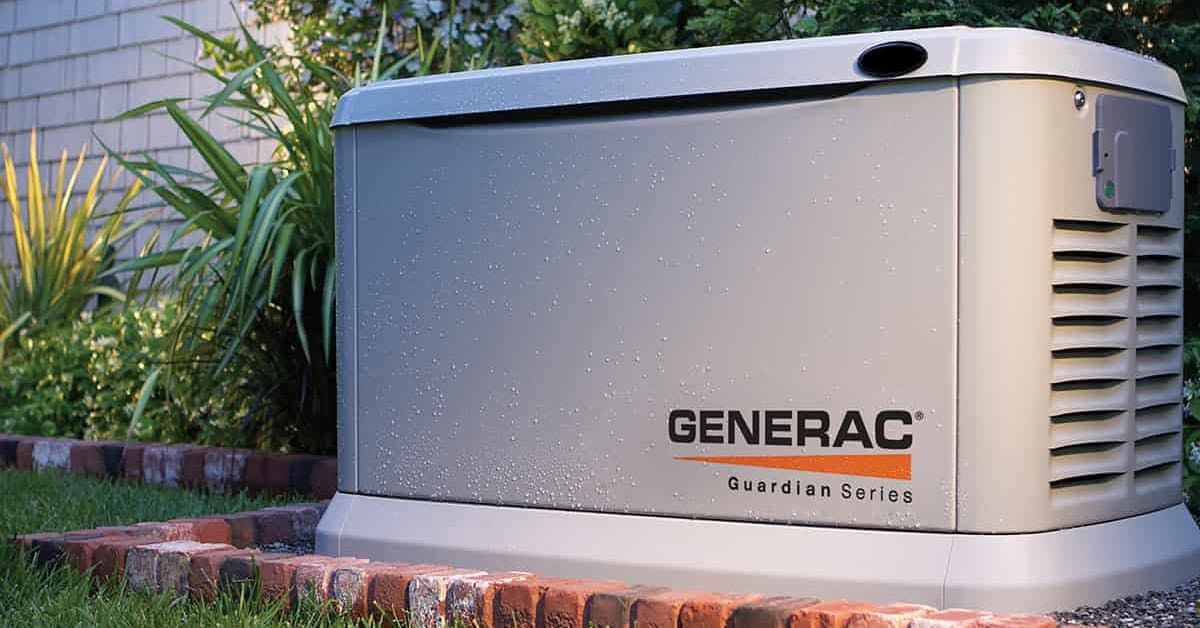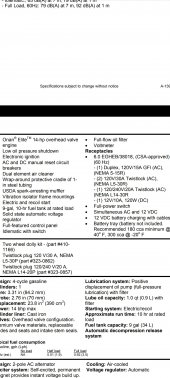Thanks everyone for your help. I hope many enjoy reading this. I have a new question:
What's the cheapest way to provide electricity automatically from natural gas. Not cost / kw, but cost of accusation.
Starting here: https://diysolarforum.com/threads/natural-gas-generator-efficiency.49756/ We find if you're already on grid it's cheaper to buy power from the grid. If you're off grid, it's likely that solar and batteries play a roll in reducing costs. If space is limited and your power is...

diysolarforum.com

Actually i looked a little closer to my bill and I looked up generic's efficiency on google: (not sure if this is a legit source but put some numbers together quick:
Now the Nationwide Best Selling Home Standby Generator–Better fuel economy–More power than other generators–Free Shipping 5-Year Warranty

blog.norwall.com
| I purchase natural gas for | | |
0.7106 | $ / therm | |
0.007107 | $ / cu ft N.G. | |
| Generac Natural Gas Generators |
| Natural Gas (ft³/hr) | 50% Load | Efficiency | | | Electricity cost | | 100% Load | Efficiency | | | Electricity cost | |
| 16kW | 193 | 24.1 ft/kW | 24.1 | ft/kw | 0.17128886 | $/kw | 312 | 19.5 ft/kW | 19.5 | ft/kw | 0.13859472 | $/kw |
| 20kW | 205 | 20.5 ft/kW | 20.5 | ft/kw | 0.14570214 | $/kw | 308 | 16.4 ft/kW | 16.4 | ft/kw | 0.11656171 | $/kw |
| 22kW | 184 | 16.7 ft/kW | 16.7 | ft/kw | 0.11869394 | $/kw | 281 | 12.7 ft/kW | 12.7 | ft/kw | 0.09026425 | $/kw |
So we never find rates that beat the utility off peak $0.08.
For on peak we do beat the $0.18 rate.
HOWEVER
These are all 16kW and up units. The few web searches I did say they output 200 AMPS of 240v. That sounds like crap, maybe peak. I believe a 16kW generator at best would put out 66 amps (16kw/240v). I won't have batteries that will charge that fast (take that much current) for a while. Even if I did there are always losses in efficiency.
The smallest I saw was the 7.5kw (/ 240v = 31.25 AMPS). That seems reasonable for a battery goal with a sol ark 15k.
All this considered.
If the 7.5kw could produce the power at $0.14 / kw (not likely but if it could). Then there is still the acquisition cost, maintenance cost, real-estate cost, noise and replacement / warranty. Are these costs lower than the costs of being free from the grid / utility / NEC codes and inspectors?
In my case no.
However it's inspiring to know that we can, with modern technology get great value from solar power if we consume first, store second and sell third. If you need insurance, a small generator on auto start will give you an ability to consider cost effectively going off grid if you have no cheap existing on grid solution.
Thanks everyone who took this adventure with me.
 www.wpowerproducts.com
www.wpowerproducts.com







